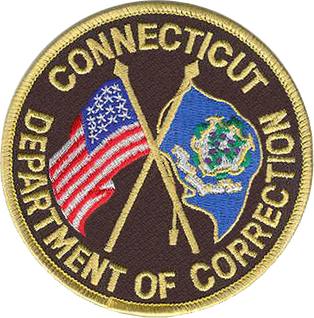DUI - Home Confinement Program
Connecticut General Statute CGS 18-100h permits the Department of Correction to release offenders to a sponsor or residence in the community that meet certain criteria during their mandatory sentence. Historically these offenders may not have been eligible for release during their mandatory sentence for DUI related offenses. A multitude of assessments are conducted on offenders who have been convicted on any of five offenses to assist in determining eligibility:
14-227 (a): Operating under the Influence (DUI)
14-215 (a, b, c): Operating a vehicle with a suspended license
21a-267: Prohibited acts regarding drug paraphernalia
21a-279 (c): Penalty for illegal possession
14-22 (m): Operation of a motor vehicle with a child passenger while under the influence of liquor or drug or while having an elevated blood alcohol content.
14-227(k): Avoidance of or tampering with ignition interlock device.
The DUI Home Confinement Program is designed for offenders with convictions directly related to operating under the influence and/or operating a vehicle with a suspended license. An offender may be eligible for the program due to his/her charges but maybe deemed to be unsuitable to be released. Offenders must have a valid sponsor or residence as part of this program.
Numerous factors including but not limited to criminal history, history of violence or disciplinary problems may be eligible for the program but deemed unsuitable for release into the community on this type of supervision. Offenders with concurrent charges other than the charges defined under CGS 18-100h, may be considered for the program if the concurrent charge(s) are satisfied prior to the end of sentence for eligible charge(s).
DOC Addiction Services Unit staff conducts an initial screening to determine eligibility and if deemed eligible. If deemed eligible a more in-depth DUI assessment is then completed to determine suitability. The initial screening occurs upon admission and is followed by the completion of the DUI assessment to determine the appropriate track placement.
The DUI HC Treatment Tracks are as follows:
Track One: Screening, assessment and brief treatment, 5 sessions.
Track Two: Full assessment and DUI HC Treatment Program, 14 sessions.
Track Three: Full assessment, DUI HC Intensive Treatment Program. Assessed as needing additional treatment beyond DUI HC Track Two. Eligible for DUI HC review upon successful program completion.
Track Four: Full assessment and a recommendation for intensive treatment due to the offender having multiple risk factors, and are otherwise assessed as unsuitable for DUI HC release.
DOC Community Release Unit (CRU) renders decisions for all DUI HC releases. If DUI HC release is approved, a release date is assigned to occur after completion of the DUI treatment track program. Approved cases are forwarded to the DOC division of Parole and Community Services DUI Unit to begin the release process.
For offenders that are eligible for Parole, serving greater than 2 year sentences (2 years plus one day or more), the Board of Pardons and Paroles cannot release offenders when they are serving mandatory time for any DUI related offense. If however, in cases where an offender is approved for parole, the offender may be considered for release on DUI HC by the DOC for the interim period between his/her hearing and the Voted to Parole date. These are on a case by case basis, and the offender must have meet all eligibility criteria and completed Track programming.
For offenders that have been denied parole, he/she may be considered for DUI HC release prior to his/her sentence completion. A parole hearing must take place in order for DOC to determine DUI HC eligibility.
Offenders that are eligible for the DUI HC program must also have the following information in order to be considered:
-
A valid sponsor or residence, which may include a sober house. Offenders may also self-sponsor
-
Police report for the DUI offense(s). Pre-sentence investigations may also be used if available
For offenders that are approved for DUI HC release, there are restrictions while on supervision. Offenders may be restricted to their home with the exception of work and pre-approved treatment related programs. Compliance checks are conducted regularly by the DUI Parole Unit and there is a zero tolerance policy for the use of alcohol or illegal substances. If an offender on HC uses alcohol or illegal substances, he or she will be remanded back into custody and will have no further opportunity for release until the sentence imposed by the court is completed.
If there are further questions about the DUI HC program, please contact one of the following staff members in the Addiction Services Unit at Central Office:
Deputy Warden Sandra Violette, 860-692-7584, sandra.violette@ct.gov
Counselor Supervisor Sherrie Gaudet, 860-763-6593, sherrie.gaudet@ct.gov
Community Release Unit, 860-814-4559

